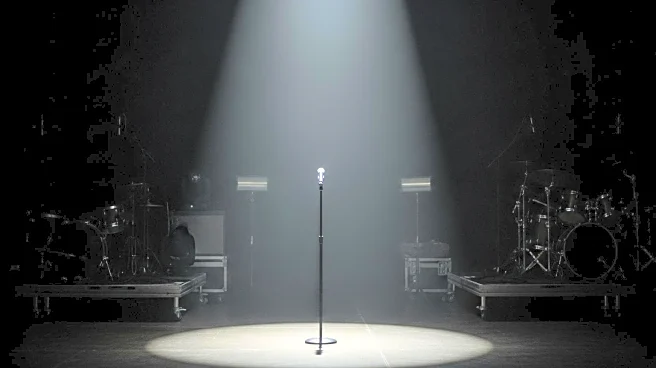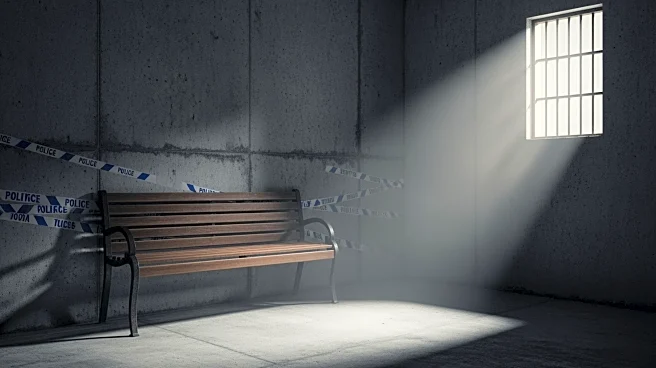What's Happening?
Lola Young, a 24-year-old singer known for her hit song 'Messy', has announced the cancellation of all her upcoming performances after collapsing on stage during a concert in New York. The incident occurred at the All Things Go music festival at Forest Hills Stadium, where Young was seen swaying and falling backwards. Following this, she also canceled her scheduled performance at the same festival in Washington DC. In a heartfelt Instagram post, Young expressed her need to 'go away for a while' to focus on her well-being, apologizing to fans and promising refunds for ticket holders. Despite the setback, Young was recently nominated for the best pop video category at the UK Music Video Awards for her song 'One Thing'.
Why It's Important?
Lola Young's decision to step back from her career highlights the ongoing conversation about mental health and the pressures faced by artists in the music industry. Her openness about needing time to 'work on myself' resonates with a broader societal push towards prioritizing mental health. This development may influence other artists to take similar steps when facing personal challenges, potentially leading to a shift in how the industry supports its talent. Fans and industry stakeholders may need to adjust expectations and provide more robust support systems for artists dealing with mental health issues.
What's Next?
As Lola Young takes time off, her future plans remain uncertain. However, her statement suggests a desire to return stronger, indicating potential future projects once she has recuperated. The music industry and her fan base will likely watch closely for updates on her health and career trajectory. Meanwhile, the cancellation of her shows across the US, Mexico, Canada, and Europe will impact ticket holders and event organizers, who will need to manage refunds and rescheduling logistics.
Beyond the Headlines
Young's situation underscores the importance of mental health awareness in high-pressure careers. It raises questions about the support systems available to artists and the cultural expectations placed on them. This incident could prompt discussions about the need for more comprehensive mental health resources within the entertainment industry, potentially leading to policy changes or new initiatives aimed at supporting artists' well-being.










